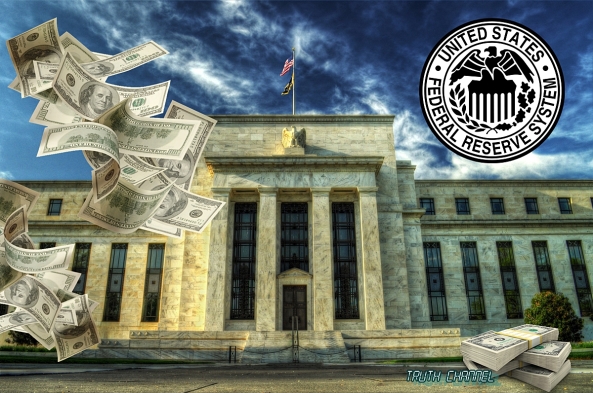The Federal Reserve Bank (FRB) warned financial institutions to reserve on-hand cash, government bonds and all highly rated assets to survive a severe economic “downturn”.
The FRB outlined essential “liquidity” requirements to ensure that cash can be assessed in an instant.
Those financial institutions with more than $250 billion in assets on the books are now required to hold those cash reserves to fund banking operations for 30 days during severe market “stress”.
Smaller banks with an estimated $50 million in worth are expected to have that much in in-house accounting to survive for 21 days.
Banks are being subject to international standards as disseminated by the Bank for International Standards (BIS).
Ben Bernanke, chair of the FRB said: “Liquidity is essential to a bank’s viability and central to the smooth functioning of the financial system. [The new regime] would foster a more resilient and safer financial system in conjunction with other reforms.”
Last January the BIS and the Basel Committee on Banking Supervisors (BCBS) has applied the underlying pressure on US banks to liquidate to appease global markets. The American taxpayer is picking up the tab for this turn of events. BIS is giving these banks until 2019 to comply with their new rules. Capital to prop up the banks will be needed while they liquidate assets such as bonds, mortgages, loans and stock shares.
Consequences of the liquidation have been evidenced in governmental austerity and movement toward sovereign debt by the technocrats. Any asset assessed by Basel can and is being used as collateral of the banksters in an anything goes temperament while the squandering of wealth continues.
BIS has used the scheme of forcing capital from the banks to control the measures taken globally. International banking constraints mandated in these new rules are putting more control into the hands of “shadow banks” where supervision is unheard of.
Michel Barnier, commissioner of BIS, stated that the Basel Committee has “revised liquidity coverage ratio and the gradual approach for its phasing-in by clearly defined dates. This is significant progress which addresses issues already raised by the European Commission. We now need to make full use of the observation period, and learn from the reports that the European Banking Authority will prepare on the results of the observation period, before formally implementing in 2015 the liquidity coverage ratio under EU law in line with the Basel standards.”
Liquidity is seen by the technocrats as a necessity for “the stability of banks as well as for their role in supporting wider economic recovery.”
At a time when the introduction of a global currency to replace all fiat across the globe is at hand, it makes perfect sense that the technocrats are positioning themselves to control the central banks as offshoot branches of their operation. At the head of this monster, the BIS sets the tone and directs the banksters with limitations and orders.
The European Central Bank (ECB) is setting the stage of a complete financial collapse of fiat currencies across the globe. Joining in the scheme are other technocratic institutions such as the Federal Reserve, the Bank of Canada, the Bank of England, the Bank of Japan and the Swiss National Bank.
Under the guise of preventing a system failure during the global financial crisis, there will be “an extension of the existing temporary US dollar liquidity swap arrangements until February, 1 2014.” This action allows the central bankers to liquidate currencies under their jurisdiction “should market conditions so warrant.” Under this plan, euros backed by nothing can continue to pour into the system throughout the Eurozone “in addition to the existing liquidity-providing operations” in the US. This liquidation will take place “until further notice.”
The UN has proposed a complete overhaul in the report entitled, “Adapting the International Monetary System to Face 21st Century Challenges”.
They call for a “more intense debate on and reforms to the international monetary system imply that the current system is unable to respond appropriately and adequately to challenges that have appeared, or become more acute, in recent years. This paper focuses on four such challenges: ensuring an orderly exit from global imbalances, facilitating more complementary adjustments between surplus and deficit countries without recessionary impacts, better supporting international trade by reducing currency volatility and better providing development and climate finance. After describing them, it proposes reforms to enable the international monetary system to better respond to these challenges.”
They recommend movement toward a global currency that will replace all current currencies. Revaluation will be accessed and the worth of money would redistribute with oversight of the IMF, WTO and ultimately the UN.
source: occupycorporatism
